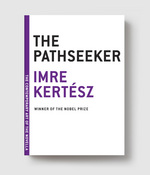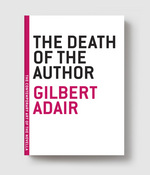
List price: $13.00
Buy
- Pages93
- ISBN9781933633817
- Publication dateNovember, 2009
- Categories
- Booksellers
- Media
- Academics & Librarians
A Happy Man
Hansjörg Schertenleib
Translated by David Dollenmayer
“A tiny delight … you’re reading entirely for the gentle and beautiful prose.” –Publishers Weekly
This book asks a simple question: Is it possible to write compellingly about a happy person? In the hands of celebrated (but never before translated into English) Swiss author Hansjörg Schertenleib, the answer is a resounding yes—because, as it turns out, even happy people are surrounded by unhappy people, which can make for considerable stress, and, well, what’s a happy man to do?
And it’s not as if the hero of this book—whose name is, well, This—is a pleasant but unaware zombie. He’s a smart, interesting, quirky jazz musician…albeit with a wife suffering from depression, and a rebellious teenaged daughter. They find his contentedness more and more irritating. And yet This just can’t help it—life makes him happy. And the mounting tension that results is beautifully set off by Schertenleib’s lyrical prose, the smoky setting of Amsterdam, and the dialogue that’s as edgy as that of a noir movie.
And thus a book that seems at first a writerly experiment becomes a gradually intensifying tale of a simple bit of human hope holding on against great odds, to an inspiring and shocking ending.
“It’s a book designed to make you want to go back and read the whole thing over again, and it’s hypnotic enough that you’ll enjoy reinvestigating it at your leisure.” —The Stranger




